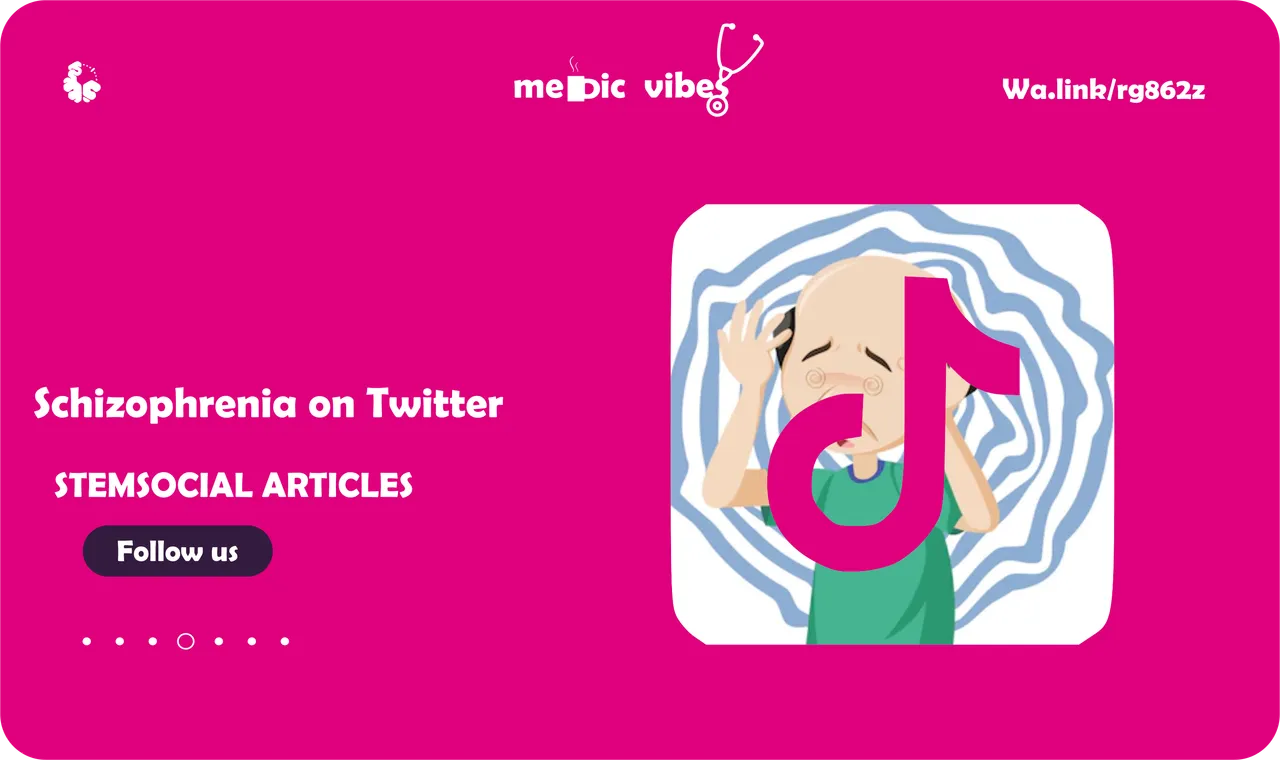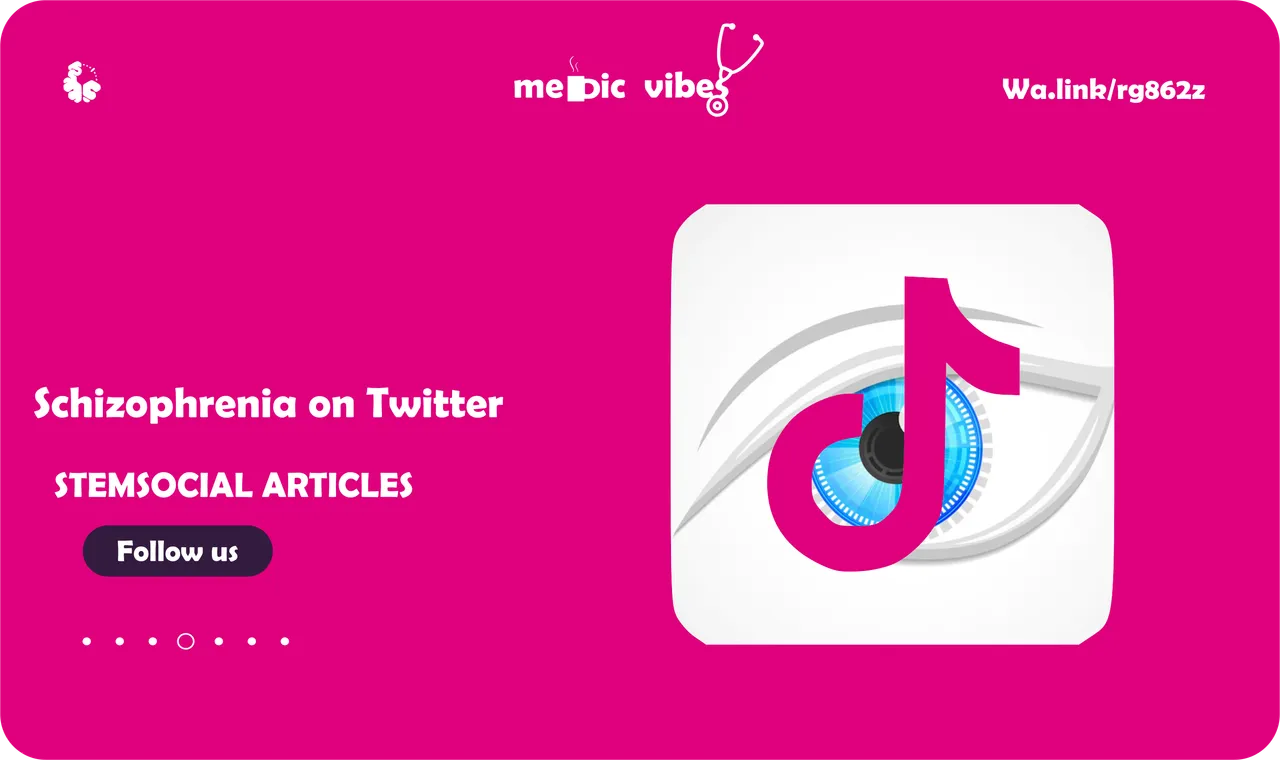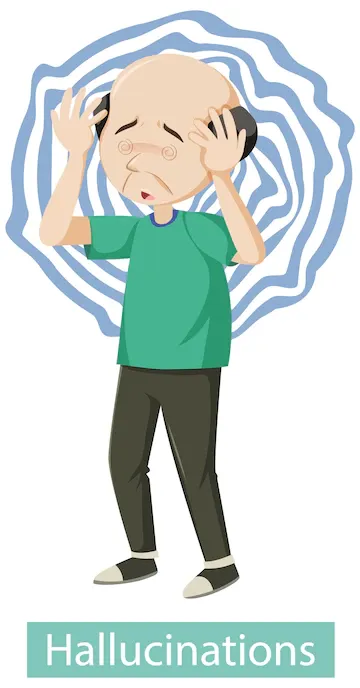
Depression vector created by pch.vector - www.freepik.com
In the last post, we saw how:
- There are different criteria for the diagnosis of schizophrenia.
- Visual hallucinations are very common in the psychosis seen in schizophrenia.
- Some patients may need to be hospitalised involuntarily.

Depression vector created by pch.vector - www.freepik.com
Welcome to Medic Vibes, where we discuss mental health disorders and make sense of them. Dr Ebingo Kigigha is a medical doctor (aspiring psychiatrist) and creative person (illustration and music). This has been our routine for three consecutive months. This month will be dedicated to Schizophrenia. In the first month, we discussed Depression, and in the subsequent month, anxiety. We just finished with Bipolar affective disorder. We are done looking at research work done in Nigeria on schizophrenia.
In this post, we are looking at a Tik Tok. To learn more just keep scrolling down. You can also skip to the key point of the post if you which or go to the conclusion to get the summary.

Types of Schizophrenia
There are % types of schizophrenia based on the complaints and the results of the mental state examination. It may be
- Paranoid Schizophrenia
- Disorganized Schizophrenia
- Catatonic Schizophrenia
- Undifferentiated schizophrenia
- Residual Schizophrenia.
The latest version of the Diagnostic and Statistical Manual does not use these subtypes but eh International Statistical Classification of Diseases and Related Problems still does. Many clinicians still use these distinctions to separate the different types of schizophrenia.

Schizophrenia and Visual Hallucinations

People generally think hallucinations are all about sights that are not normal but they typically have more than just a visual aspect to them. It usually involves other senses other than the visual. The very first that starts schizophrenia is smell than others.
Schizophrenia is a very common cause of hallucinations but other medical problems like Parkinson's and epilepsy have can have this effect.
If you or a loved one has hallucinations, go see a doctor. You can get treatments that help control them, but a lot depends on what's behind the trouble. There are a few different types.
Going to see a doctor to seek care is the most important thing you can do to help deal with whatever cause it may be.
Schizophrenia is one of the most common causes of schizophrenia and 60 to 90% of them have auditory symptoms. But there is also the possibility of gustatory symptoms.
Parkinson's disease. Up to half of the people who have this condition sometimes see things that aren't there.
50% of the people who have Parkinson's will experience hallucinations. Dementia and its different forms such as Alzheimer's and Lewy body will all present with visual hallucinations. It is usually the case that the condition is more advanced at the time.
One out of three people with migraine also has an “aura” which is a type of hallucination.
If a brain tumour has grown in the visual cortex then there is a chance that it may produce abnormalities in vision. The hallucinations will be mostly things like shapes. If the tumour presses on some parts of the brain there will be smell and taste hallucinations.
When the seizure is a result of certain conditions that affect visual areas, then the patient may have hallucinations.
The auditory hallucinations usually come with sounds that are perceived to come from inside the head or outside the head and cause distress to the patient. Auditory hallucinations are seen in schizophrenia, psychosis or mania in Bipolar affective disorder, and borderline personality disorder. A patient who has sensory deprivations to the ear may also have hallucinations like this too like those with he4aring loss. When a patient does not sleep properly they may also have auditory problems.
These usually seem as if they are coming from someone or something around the subject. In schizophrenia, some studies have shown that this is one of the first hallucinations seen.
Some other causes could be investigated also, like head injury, common cold and temporal seizures. Some other medical abnormalities should also be looked at like Parkinson's disease, signs and symptoms of this condition will usually give this condition away.
A person who has this will taste things that are not present. Temporal diseases, brain injuries from whatever cause, diseases of the nasal sinuses in the head, and seizure disorders are common causes of this type of hallucination.
The common feeling is that of being tickled or that insects are on your skin. Some patients may complain that they feel hot air streaming towards them. Schizophrenia is a common cause of this other forms of schizophrenia like schizoaffective disorder can also present this way. Alcohol and alcohol withdrawal can give these feelings.

Treatment
Treatment usually starts with a diagnosis of the particular condition and being aware of the differential diagnosis is also very helpful. This will require the patient to be thoroughly examined and investigated if the condition requires an investigation. An important investigation may be an EEG to properly understand the electrical activities of the brain.
An MRI is useful to see the structural makeup of the brain and see if there is a tumour.
The drugs used in treating hallucinations are the drugs used to treat the specified condition causing the hallucination. For Schizophrenia the patient will be placed on typical and typical antipsychotics. The treatment usually follows a course for acute management and then maintenance therapy.
Questions
- What did you learn about Schizophrenia?
Conclusion
- There are 5 types of schizophrenia Paranoid schizophrenia, Disorganised schizophrenia,Catatonic Schizophrenia, Undifferentiated schizophrenia, and Residual Schizophrenia.
- There are different types of hallucination affecting every sense organ.
- The treatment fot the cause of the hallucination is based on the cause

References
- Kaplan-Sadocks-Comprehensive-Textbook-Psychiatry
- Page demarcations made with Inkscape.org
- WEB MD
